In Feng Shui, mirrors are considered powerful tools that can either enhance or disturb the energy flow (Chi) of a space.
When used thoughtfully, mirrors can invite abundance, positivity, and harmony. But when placed incorrectly, they can lead to imbalance, energy loss, or even bad luck.
I will explain how to use mirrors according to Feng Shui principles to transform your home into a peaceful and prosperous sanctuary.
The Power of Mirrors in Feng Shui
In Feng Shui, mirrors symbolize water and have the ability to reflect and expand energy.
This makes them ideal for amplifying wealth, doubling positive energy, and creating a sense of openness in a room.
Mirrors are often called the “aspirin of Feng Shui” because they can solve many energetic problems in a space quickly and easily.
Mirrors can:
- Attract wealth and abundance.
- Deflect negative energy or block harmful influences.
- Make small spaces appear larger and more spacious.
- Brighten dark corners by reflecting light.
- Symbolically double what they reflect—so placement matters greatly.
However, improper use of mirrors can also cause:
- Energy leakage.
- Disturbed sleep.
- Increased stress.
- Bad luck or missed opportunities.
Best Areas to Place Mirrors According to Feng Shui
1. The Dining Room
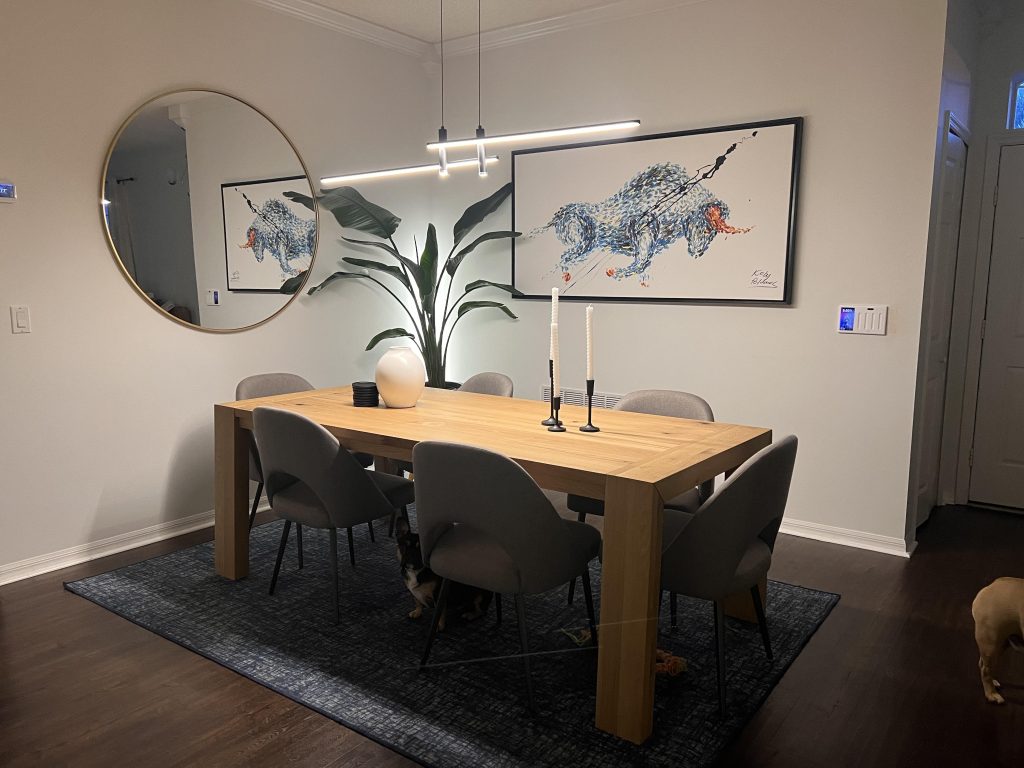
In Feng Shui, the dining room is associated with wealth and abundance because food represents prosperity.
Hanging a mirror that reflects the dining table symbolically “doubles” the food and wealth energy, enhancing abundance and prosperity in your life.
This is one of the most favorable places to hang a mirror.
2. The Living Room
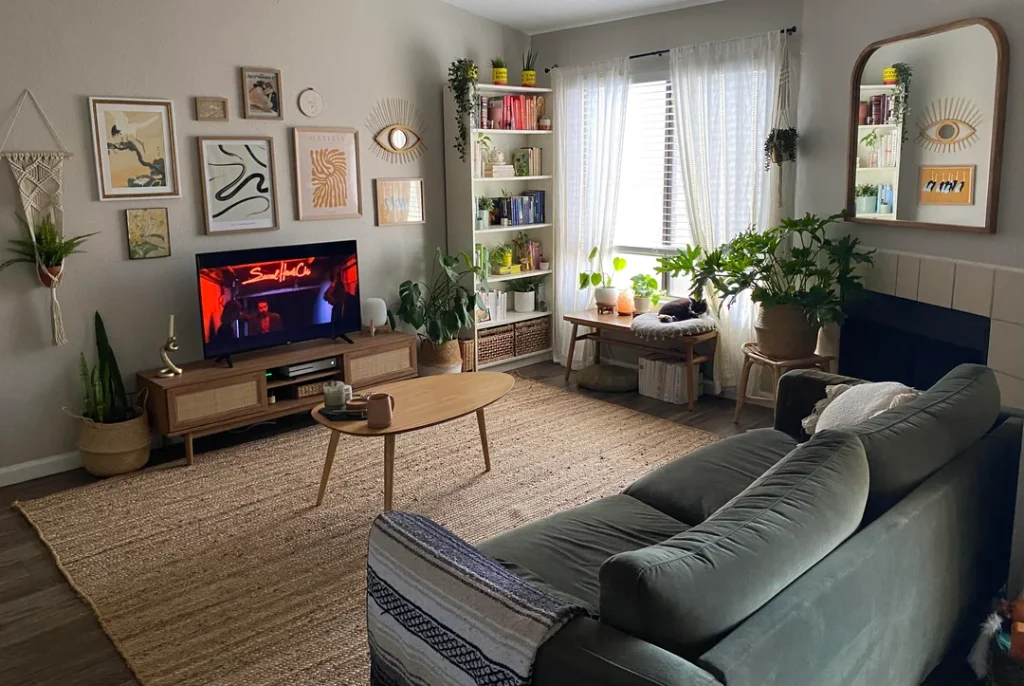
Mirrors in the living room can make the space feel brighter, larger, and more vibrant.
Position mirrors to reflect pleasant views like greenery, light, or artwork. This will multiply beauty and positive energy in your space.
Avoid mirrors that reflect clutter, sharp edges, or messy areas as this doubles chaotic or harmful energy.
3. Entryway or Foyer
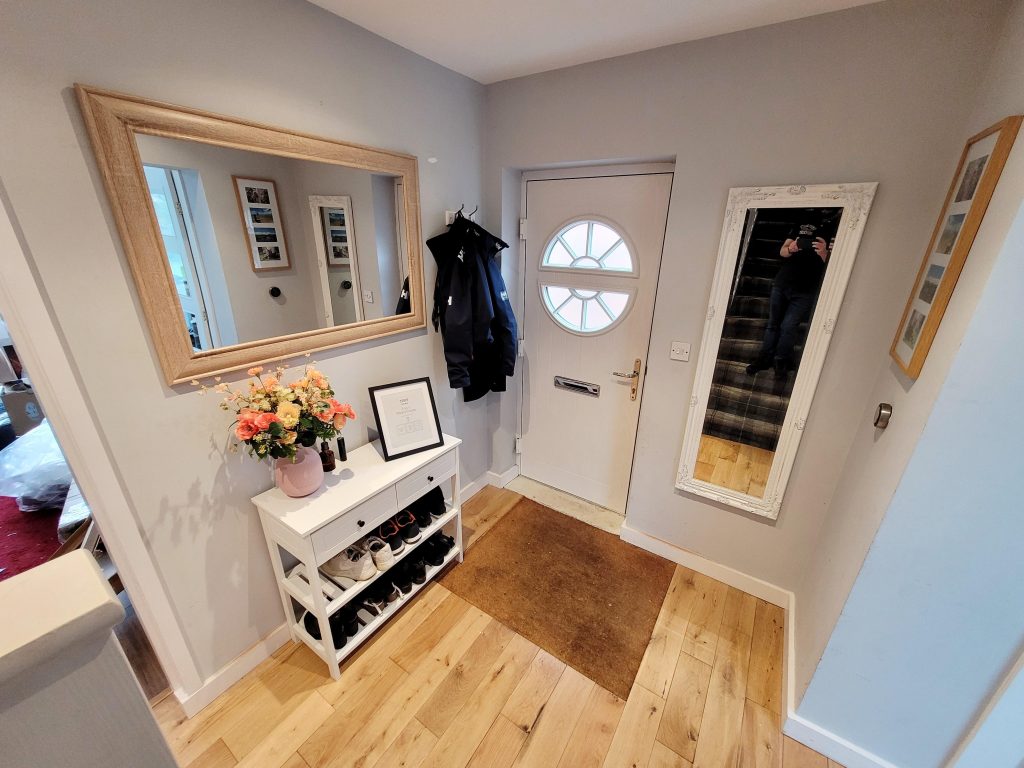
A mirror in the entrance area can help circulate energy and make the space feel inviting. However, avoid placing the mirror directly opposite the front door.
This is considered bad Feng Shui because the mirror will reflect and push away all incoming energy (Chi), preventing wealth and opportunities from entering your home.
Instead, place mirrors on the side walls of the entryway to gently guide energy into the home.
4. Home Office or Workspace
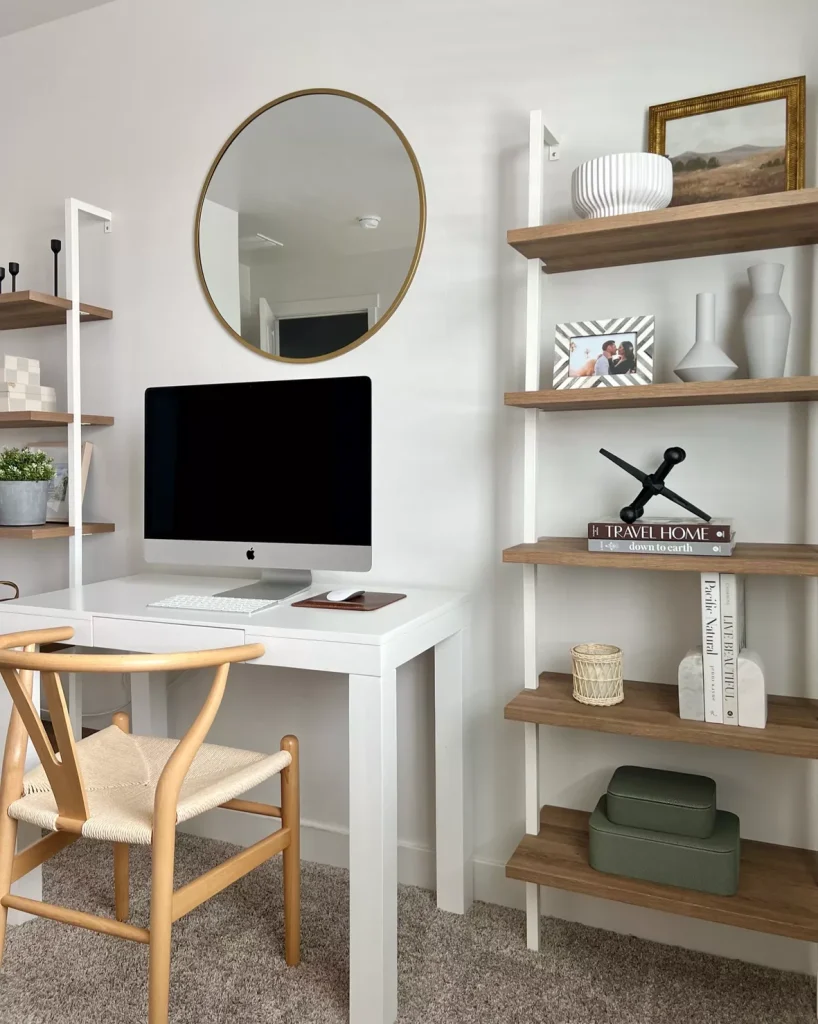
If your desk faces a wall or a window with a view, placing a mirror nearby can make your workspace feel more open and inspire creative thinking.
Avoid mirrors that reflect stressful areas like cluttered shelves or bills as this can magnify anxiety or overwhelm.
5. Bedroom (Use with Caution)
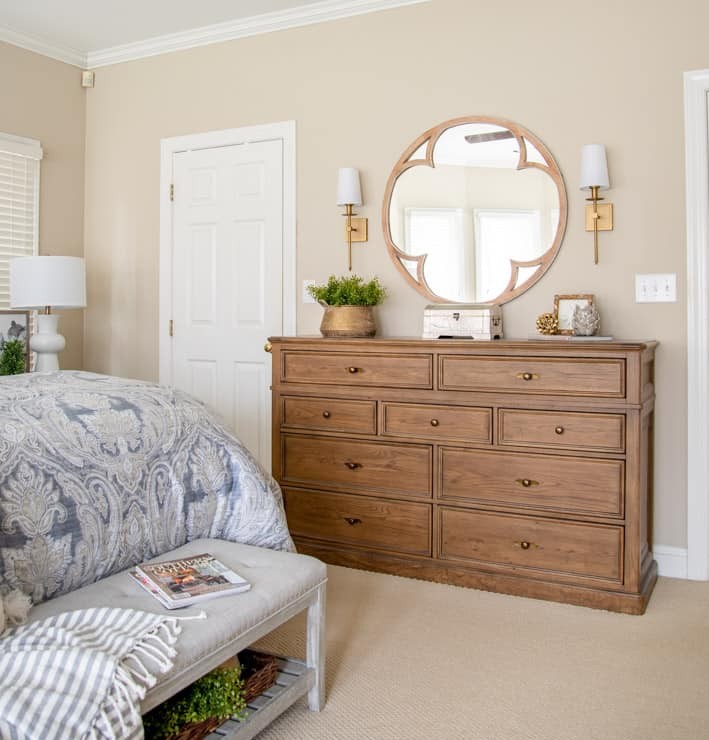
Mirrors in the bedroom are tricky in Feng Shui.
They are thought to disturb sleep by bouncing energy around the room, causing restlessness. If you need a mirror in the bedroom, ensure that:
- It doesn’t face the bed.
- It is covered at night if necessary.
- It reflects calming, positive images—not clutter or sharp objects.
If a mirror reflects your bed, it can also symbolically invite a third party into relationships, causing misunderstandings between couples.
Therefore, the bedroom is the least recommended place for large mirrors.
Areas to Avoid Mirrors in Feng Shui
1. Opposite the Front Door
As mentioned, this placement reflects energy back outside, which can cause opportunities and good fortune to be lost.
It is one of the most discouraged Feng Shui mirror placements.
2. Facing Toilets or Bathrooms
Mirrors that reflect bathrooms or toilets can double negative energy. Bathrooms are spaces where waste leaves the house, symbolizing energy loss.
Avoid hanging mirrors that reflect the toilet or bathroom door.
3. Opposite Sharp Edges or Clutter
A mirror magnifies whatever it reflects. If it reflects a pile of clutter, disorder, or a sharp architectural feature (like a column or ceiling beam), it will double this negative energy.
Make sure mirrors reflect peaceful, beautiful, or inspiring views.
Choosing the Right Mirror Shape and Frame
In Feng Shui, the shape and frame of a mirror also have symbolic meanings:
- Round mirrors: Represent unity, wholeness, and harmony. Ideal for family rooms or social areas.
- Oval mirrors: Promote smooth energy flow and balance.
- Square or rectangular mirrors: Provide stability and grounding, perfect for offices or structured spaces.
- Framed mirrors: The frame represents boundaries and structure. Choose frames in natural materials (wood or metal) and harmonious colors according to the room’s Feng Shui element.
Avoid broken, cracked, or distorted mirrors. They symbolize broken energy and can attract bad luck or confusion.
Feng Shui Bagua Mirror (Pa Kua)
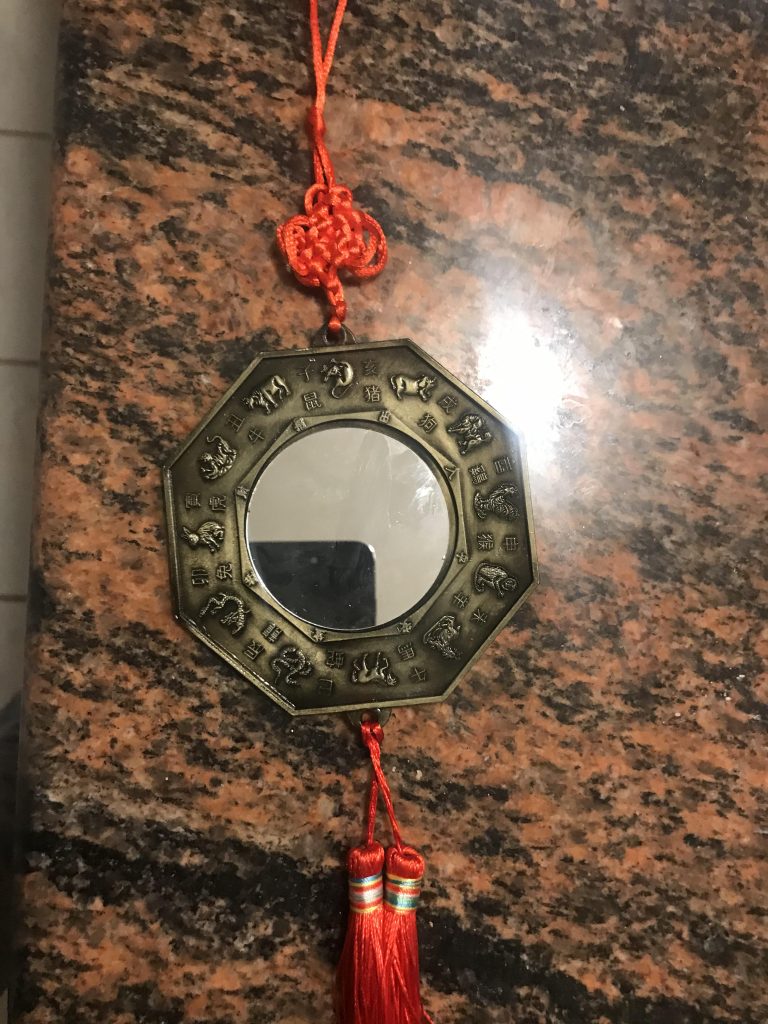
One special type of Feng Shui mirror is the Bagua Mirror (Pa Kua). This is not for decorative indoor use but for exterior protection.
A Bagua Mirror is placed outside the home, above doors or windows, to deflect harmful energy or sharp structures like poison arrows from nearby buildings.
- Convex Bagua Mirror: Reflects and disperses negative energy from the surroundings.
- Concave Bagua Mirror: Absorbs and neutralizes harmful energy directed at the house.
Note: Never hang a Bagua Mirror inside your home. It is meant only for outdoor protective purposes.
Mirror Placement Tips for Different Feng Shui Elements
- East and Southeast (Wood Element): Use wooden or green-colored frames to nourish the wood energy.
- South (Fire Element): Avoid placing mirrors here as mirrors represent water energy, which clashes with fire.
- North (Water Element): Excellent for mirrors; use black or blue frames.
- West and Northwest (Metal Element): Mirrors with metallic or white frames support this energy sector.
Additional Feng Shui Mirror Tips
- Keep Mirrors Clean: Dirty mirrors distort reflections and energy. Always clean them regularly to maintain positive Chi.
- Avoid Multiple Mirrors Facing Each Other: This can create chaotic energy, confusion, or even conflict among residents.
- Reflect What You Want to Attract: Position mirrors to reflect symbols of wealth (like plants or a bowl of fruit), beauty (artworks), or happiness (family photos).
- Don’t Hang Mirrors Too High or Too Low: The mirror should reflect the body and face of the person using the space, not cut them off.
Mirrors are powerful Feng Shui tools that can greatly impact the flow of energy in your home.
When placed thoughtfully, they can invite prosperity, happiness, and balance into your life. Remember the simple rule: A mirror doubles what it reflects—so make sure it reflects only what you want more of in your life.
With the right mirror placement, your home can become a magnet for positive energy, opportunity, and well-being.
